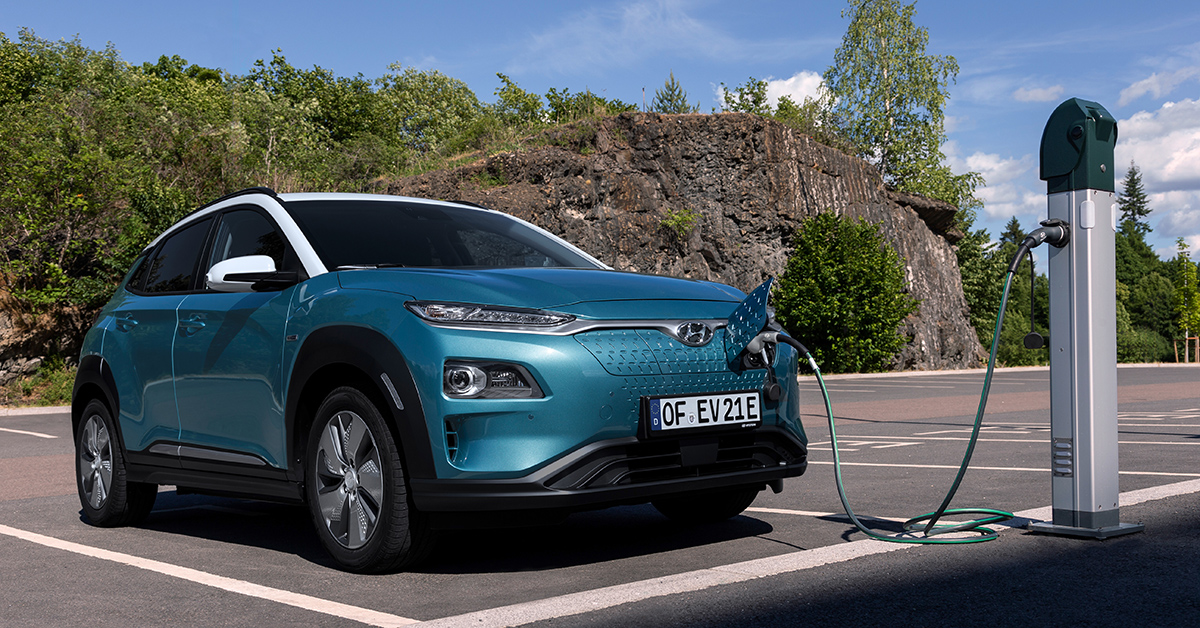Blog
What Cost Savings Can You Expect From an Electric Vehicle?

Drivers in Maine and around the world are making the switch to electric vehicles. Electric vehicles, or EVs, are fun to drive, cheaper to operate, and cleaner for the environment. Efficiency Maine offers rebates to make the switch to an electric vehicle even easier. If you’re interested in buying an EV, we’d like to share some useful information about owning and driving them. Over the next few weeks, we’ll cover a variety of EV topics that we hope will help Mainers across the state feel confident and excited about switching to an EV. Today’s topic: what cost savings can you expect from an EV?
According to the U.S. Department of Energy, it costs about one-third as much to drive an electric vehicle as a gas-powered vehicle. EVs have lower maintenance costs, lower fuel costs, and may qualify for rebates that bring down the upfront cost of the vehicle.
EVs typically have higher upfront costs, or manufacturer suggested retail prices (MSRPs), than similarly sized gas-powered cars, but more EV options are being introduced at a range of prices. What’s more, EVs often qualify for rebates that gas-powered cars do not, such as federal tax credits, Efficiency Maine EV rebates, and manufacturer rebates. Federal tax credits are either included in lease pricing or claimed on your income tax return for car purchases and are administered by the IRS, not by Efficiency Maine. Click here to learn more about EV rebates and other incentives.
Since EVs are highly efficient, drivers will likely see lower fuel costs than they would with a gas-powered car. Charging a typical battery electric vehicle (BEV) costs about 7 cents per mile in Maine. In contrast, fueling a gasoline car that has a fuel economy of 30 miles per gallon costs about 11 cents per mile, assuming a gasoline cost of $3.36 per gallon. If you drive 11,500 miles per year – the national average – you could save $600 or more in annual fuel costs by driving an EV instead of driving a conventional gasoline car.* Although EV drivers who charge at home will likely see an increase in their electricity bill, they will likely save money overall by not having to pay for gas. Even an average Maine driver of a plug-in hybrid electric vehicle (PHEV) will reduce their gasoline consumption from 540 gallons/year to just 140 gallons/year.
In addition to fuel savings, EV drivers also will save on maintenance costs. According to a 2020 Consumer Reports study, EVs cost half as much to maintain as gasoline vehicles. EVs have fewer moving parts that may need repair and don’t need some of the routine maintenance required of conventional cars, such as oil changes. What’s more, the EV feature of regenerative braking allows drivers to slow to a stop without using their brakes, thus extending brake life.
All of these cost savings can really add up. If you’re interested in learning more about how EVs and gas-powered cars vary in cost, visit the U.S. Department of Energy’s Vehicle Cost Calculator.
Efficiency Maine offers instant rebates for eligible battery electric vehicles (BEVs) and plug-in hybrid electric vehicles (PHEVs) at participating Maine car dealers. Eligible BEVs and PHEVs direct from a manufacturer are eligible for mail-in rebates. For a detailed list of vehicles that qualify for Efficiency Maine rebates, visit https://www.efficiencymaine.com/docs/EV_Rebate_Eligible_Vehicles.pdf. To find a participating dealer near you, visit https://www.efficiencymaine.com/docs/EV_Accelerator_Participating_Dealers-3.pdf. Also check https://www.efficiencymaine.com/ev/ for our EV video library and other resources.
*Source: https://www.efficiencymaine.com/electric-vehicle-faqs/
**Source: https://afdc.energy.gov/files/u/publication/pev_consumer_handbook.pdf
To subscribe to Efficiency Maine’s blog page, please click here.
